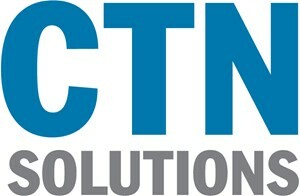Summer vacations and long holiday weekends, like the Fourth of July, are perfect opportunities to unwind and enjoy some well-deserved downtime. However, as you relax, cybercriminals remain active, seeking to exploit lapses in digital vigilance. Here’s how you can protect your personal information while enjoying your time off while also remaining vigilant.
- Secure Your Devices
Before you head out, ensure all your devices are secure:
- Update Software: Make sure your operating systems, apps, and antivirus software are up-to-date to protect against known vulnerabilities.
- Use Strong Passwords: Ensure all your accounts are protected with strong, unique passwords. Consider using a password manager to keep track of them.
- Enable Two-Factor Authentication: Add an extra layer of security to your accounts by enabling two-factor authentication (2FA) wherever possible.
- Be Cautious with Public Wi-Fi
Public Wi-Fi networks, common in airports, hotels, and cafes, are convenient but often insecure:
- Avoid Sensitive Transactions: Refrain from accessing sensitive information, such as online banking or shopping, over public Wi-Fi.
- Use a VPN: If you must use public Wi-Fi, a Virtual Private Network (VPN) can encrypt your internet connection, protecting your data from eavesdroppers.
- Turn Off Auto-Connect: Disable the auto-connect feature on your devices to prevent them from connecting to untrusted networks automatically.
- Watch Out for Phishing Scams
Cybercriminals often take advantage of the holiday season with phishing attacks:
- Be Skeptical of Unsolicited Messages: Be wary of emails, texts, or social media messages from unknown sources, especially those that urge immediate action or request personal information.
- Verify Links and Attachments: Before clicking on links or downloading attachments, verify their legitimacy. Hover over links to see the URL and look for signs of phishing, such as misspellings or suspicious domain names.
- Use Email Filters: Enable email filters to reduce the number of phishing emails that reach your inbox.
- Protect Your Personal Information
Sharing your vacation plans on social media can be tempting but can also make you a target:
- Limit Social Media Sharing: Avoid posting real-time updates about your travel plans or current location. Save those vacation photos to share once you’re back home.
- Check Privacy Settings: Review the privacy settings on your social media accounts to control who can see your posts and personal information.
- Be Mindful of Public Computers: If you need to use a public computer, avoid logging into personal accounts, and always log out and clear the browser history when you’re done.
- Monitor Your Accounts
Keep an eye on your accounts even while you’re away:
- Set Up Account Alerts: Enable notifications for any unusual activity on your bank and credit card accounts.
- Regularly Check Statements: Periodically review your account statements to catch any unauthorized transactions quickly.
- Have a Backup Plan: Ensure you have a way to access account information securely in case you lose your devices.
By taking these precautions, you can enjoy your summer vacation or Fourth of July holiday weekend with peace of mind, knowing that your personal information and devices are protected from cyber threats. Stay vigilant, practice good cybersecurity habits, and make your time off both relaxing and secure.
Have a safe and enjoyable holiday!
